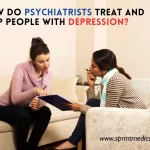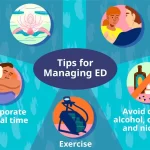After giving birth to your child, you may be filled with many emotions, ranging from joy to sadness. It is normal to feel a lot of emotions, but if your sadness starts feeling severe and interfering with your daily life, you may suffer from PPD or postpartum depression. Talking to an expert and counseling is the best way to deal with postpartum depression.
What is postpartum depression?
Postpartum depression (PPD) is a kind of depression that occurs after delivering a child. Postpartum depression can affect more than just the person who gives birth. It can also have an impact on adoptive parents and surrogates. After having a kid, people go through hormonal, emotional, physical, social, and financial changes. These alterations can result in postpartum depression symptoms.
What are the types of postpartum depression?
The three types of postpartum mood disorders are:
- Postpartum blues or baby blues
- Postpartum depression
- Postpartum psychosis
What are the symptoms of postpartum depression?
Postpartum depression is very common, and you do not have to feel ashamed or guilty for feeling the way you do. Experiencing symptoms of postpartum depression does not make you a bad person or parent, and you are not alone. Some of the most common symptoms of postpartum depression are:
- Excessive worrying or always feeling on edge
- Feeling extremely sad, hopeless, worthless, or guilty
- Not eating or experiencing changes in your appetite
- Losing interest in your hobbies or things you used to enjoy
- Wanting to sleep all the time or having trouble sleeping
- Loss of motivation and energy
- Having difficulty focusing or thinking clearly
- Crying excessively, usually for no reason at all
- Wishing you were dead or having thoughts of suicide
- Feeling anxious around your baby or experiencing a lack of interest in your baby
- Feeling like you do not want your baby or having thoughts about hurting your baby
Who is affected by postpartum depression?
Postpartum depression is extremely common. After giving birth, up to 75% of people experience baby blues. Postpartum depression affects up to 15% of these women. Postpartum psychosis affects one in every 1,000 women.
Think you may have postpartum depression?
If you have the symptoms of postpartum depression and think that you may be suffering from it, do not waste any more time speculating. If you are suffering from postpartum depression, know that you are not alone, that it is not your fault, and that help is available. Talk to a mental health expert today and get a proper diagnosis so that you can receive therapy and improve.








